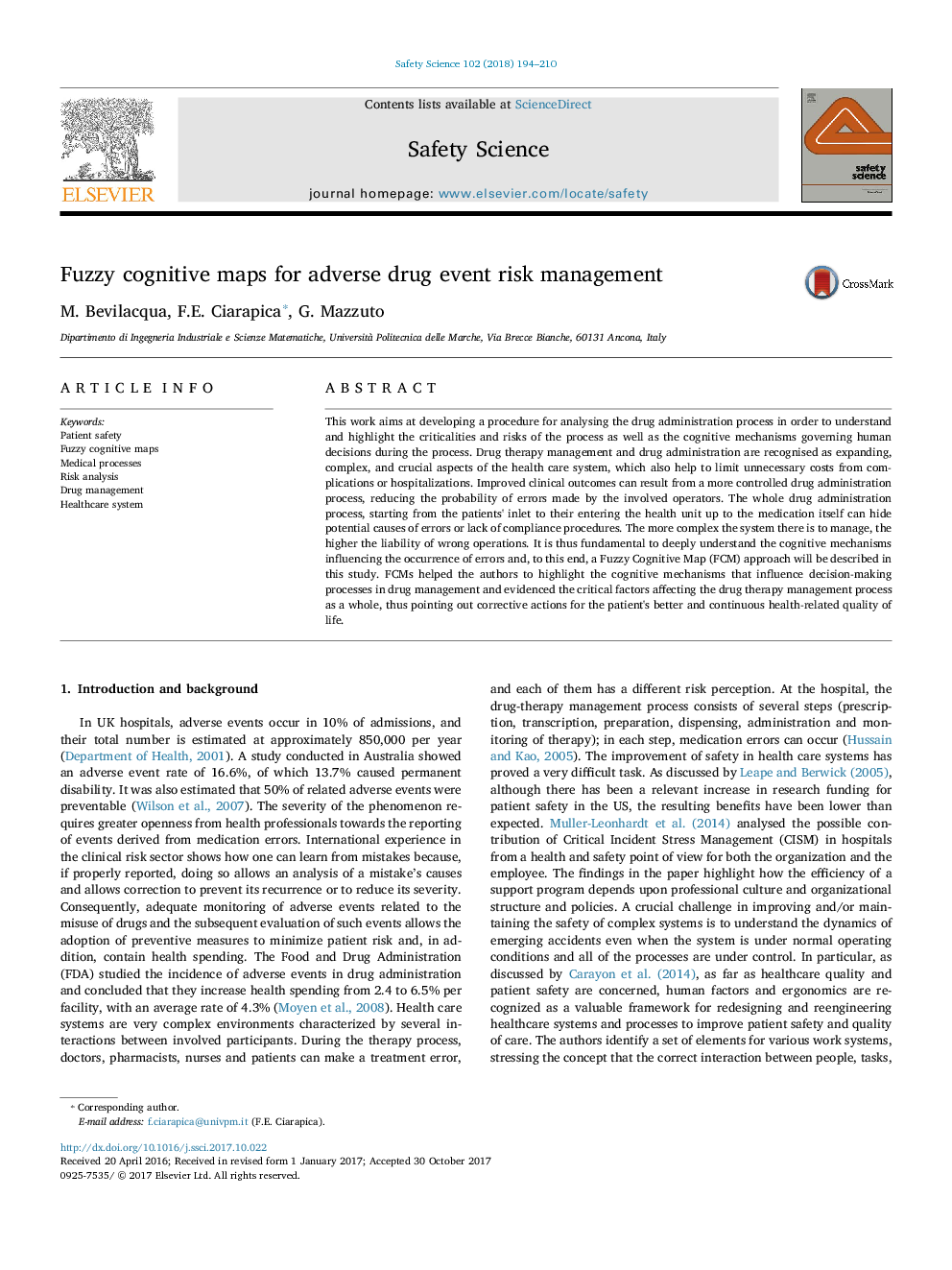ترجمه فارسی عنوان مقاله
نقشه شناختی فازی برای مدیریت ریسک رویدادهای جانبی
عنوان انگلیسی
Fuzzy cognitive maps for adverse drug event risk management
| کد مقاله | سال انتشار | تعداد صفحات مقاله انگلیسی |
|---|---|---|
| 83173 | 2018 | 17 صفحه PDF |
منبع

Publisher : Elsevier - Science Direct (الزویر - ساینس دایرکت)
Journal : Safety Science, Volume 102, February 2018, Pages 194-210
ترجمه کلمات کلیدی
ایمنی بیمار، نقشه شناختی فازی، فرآیندهای پزشکی، تحلیل ریسک، مدیریت مواد مخدر، سیستم بهداشتی،
کلمات کلیدی انگلیسی
Patient safety; Fuzzy cognitive maps; Medical processes; Risk analysis; Drug management; Healthcare system;

